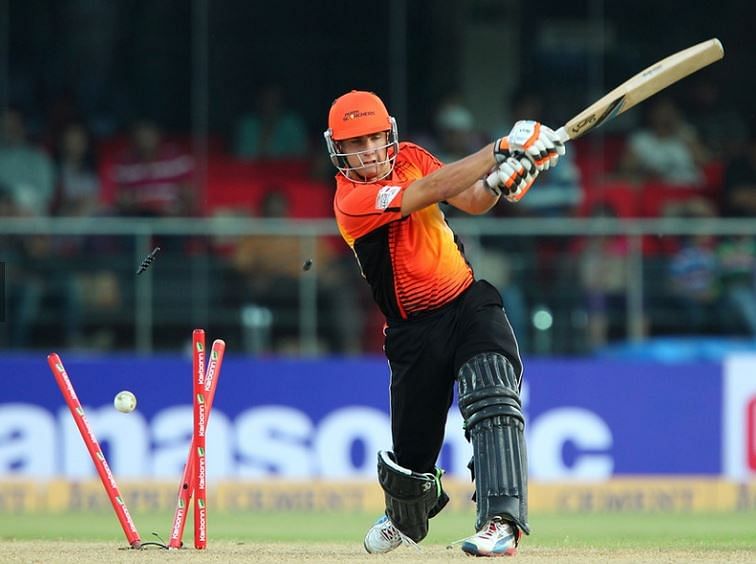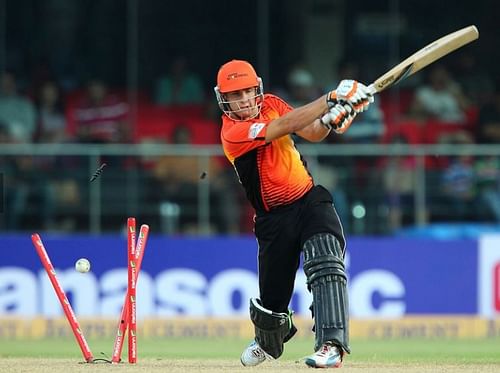
CLT20 and Michael Hussey - Unearthing the skeletons buried underneath the Southern Cross

CLT20 saw the Australian teams at their poorest
Group A: Rajasthan Royals, Mumbai Indians, Otago Volts, Highveldt Lions and Perth Scorchers
Group B: Trinidad and Tobago, Chennai Super Kings, Titans, Sunrisers Hyderabad and Brisbane Heat
In case, you weren’t following the Champions League T20, that’s how the groups stand at the end of the League phase. Though, the tournament doesn’t have a loyal following and is mostly tagged as “useless”, this Champions Trophy has actually punched above its weight in terms of the quality of cricket on display.
As expected , the IPL teams flexed their muscles and grabbed three out of the four knock out positions and Trinidad and Tobago lived up to their billing by making it to the business end, yet again.
But more than the dominance of the IPL teams and the fire-brand display from the Volts, this Champions Trophy put its seal on the fact that in the cricket world, Australia is no more a super power. The performances of the Big Bash Champions and the runners up teams reinstated that all is not well with Australian cricket and the excerpts from Micheal Hussey’s autobiography confirmed that the rot has percolated down to the domestic structure.
The CLT20 debut for the Big Bash Champions, Brisbane Heat, and the Runners Up, Perth Scorchers, turned out to be quite forgettable as both teams were the first ones to be knocked out of the competition. Both teams looked out of depth and as a result, ended up at the bottom of their respective groups and would have head home with a clean slate had the weather gods didn’t come to their rescue.
Interestingly, if you roll back the mini history of the CLT20 competition, the Australian teams have been the most dominant forces over the last five years – the inaugural edition was won by the New South Wales Blues while last year, the electric pink clad Sydney Sixers took the trophy down under.
But since the end of 2012, Australian cricket seems to have hit a downward spiral and they keep swirling down at a rapid pace. There has been a lot of talk about big players retiring and the team being in transition but even then, teams from Australia have never lacked the fight and have surrendered games the way the Scorchers and Heat did.
The Heat batsmen failed miserably on the slow turning pitches and added fuel to the wide spread perception of the Aussie vulnerability against quality spinners.
Although the Heat’s stand-in captain, Nathan Hauritz had an excuse ready to shield the ineptness of their batting line-up – “Every time an Australian team tours here, the Indian spinners do very well.. We don’t play on many wickets that turn in Australia and we get a bit shown when we come here.” – it couldn’t put a veil on the incompetence of the young Aussie batsmen.
If Brisbane felt the heat of being the Big Bash Champions, the team from Perth got scorched and baked in every game that they played. The Simon Katich led side didn’t have enough quality and never threatened any of their oppositions. They neither scored big nor made any impression with the ball. Forget the spinners, their batsmen crumbled in front of the pace of their fellow countryman Nathan Coulter-Nile.
However, more than the lack of talent, the young Australian cricketers looked overawed and too eager to perform while the leadership of both sides failed to guide them through the alien conditions.
The Scorcher’s skipper, Simon Katich is an old warrior and has been one of those cricketers who fought by the skin of his teeth. He was a part of the generation of Australian cricketers who struck fear into the opposition but it seems that the spat with Michael Clarke, that put him out of the fray of the national team, has knocked the fight out of the man who once denied India a historic Test win.
The less that’s said about Heat’s leadership, the better. James Hopes, their captain, didn’t play all the games while Nathan Hauritz stood in for him. However, both Hopes and Hauritz aren’t inspirational leaders in any front. They never were regular internationals and have always been those fringe players who were handed their Baggy Greens due to the lack of better options available.